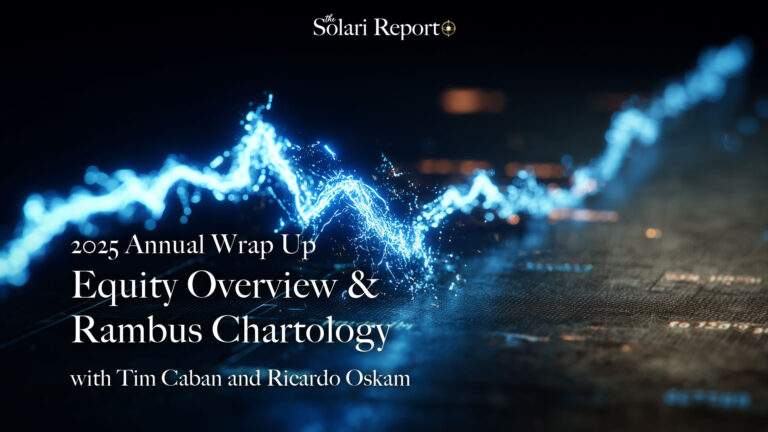Morgan Keegan defended itself today against the NY Times report which we commented on yesterday, titled Liquidating Thy Neighbor – Part I.
I do agree with Morgan Keegan’s spokesman that this was a politically motivated attack. I can only guess what the particular motivation was in this case.
- For example, the New York brokerage firms and banks have a much worse record of financially raping local communities, including with derivatives. (Click here and here for JP Morgan and Morgan Stanley in Pennsylvania and here and here for JP Morgan and Morgan Keegan together in Alabama) Surely they would have a vested interest in watching a regional firm take the fall for the municipal woes overtaking our country. Firms like AIG and their law firms would certainly have access to the information they needed to package this story and hand it to the NY Times.
- As the industry consolidates, certainly competitors both global and local can benefit from the loss of market share by as institution as prominent as Regions, including subsidiary Morgan Keegan.
- What could be more politically useful as folks in Tennessee prepare their individual taxes in the face of a Washington-Wall Street engorgement of $12-14 trillion of bailouts, then their ire be turned on their neighbors?
I don’t agree with Morgan Keegan’s defense of its practices. As an investment banker who has closed more than $25 billion in transactions and advised both governments and corporations for decades, including on interest rates swaps (the transaction in question), what happened to Lewisburg, Tennessee should not have happened. But let’s set that aside. There is something much more deeply, seriously wrong here that needs to be addressed.
The important question is not why did Lewisburg use a interest rate swap deal in which it assumed the risk for a default or downgrade by the insurance provider in connection with taking on more debt. The important question is why in the world did Lewisburg take on more debt in the first place? Why did Lewisburg not shift more local capital out of Wall Street and into investment in Lewisburg?
Lewisburg, Tennessee borrowed money to fund water and sewer for economic development. Why were they borrowing for such purposes in the first place?
Typically, municipalities borrow because there is insufficient equity investment and income in the county in the first place.
The county makes a significant investment in educating and rearing young people. What happens to that investment? A few high performers head of to college on scholarships never to return. Many of the rest go to the military or, if entrapped instead into dealing drugs, to prison. The return on investment on their young? It goes to Wall Street and Washington, not to the families and community.
Despite the drain of human capital, numerous hard working members of the community build businesses and careers, live modestly and over a life time accumulate capital. Where is that capital? It is in state and local pension funds, 401k and IRA accounts, and various bank and brokerage accounts, all such as those marketed and managed by Morgan Keegan and Regions Bank.
So as Morgan Keegan and Regions Bank and their competitors attract all of this hard earned capital into their accounts, where is that investment channeled? It is channeled out of the community. It is invested through Wall Street in the stock of Citibank, JP Morgan Chase, Wal-Mart, the big defense contractors, the internet stocks, Enron and the telecoms, or, as the powers that be direct, into investments abroad.
How much of it is channeled back into equity investment in the community? Typically, none.
And so, as the human capital in the community is shipped out to Harvard, Iraq and the state penitentiary or the morgue while the equity capital in the community is shipped to Wall Street, the value of the local small business community is drained. Reinvestment into the local businesses slows to a trickle. They do not keep up with technology and globalization.
This means that the franchise businesses financed by Wall Street (including with the state and local equity) can then come in and take over the market, eating into the market share of the local businesses and putting them out of business. The local savers, turning over their capital to Wall Street through firms like Morgan Keegan, Regions and their national counterparts, are financing their own destruction. The theory, of course, is that doing so would make them money. As we have seen over the last year, that theory has not panned out particularly well.
So what happens next? Well some smart fellow from a firm like Morgan Keegan or Regions Bank comes along and proposes that to create new businesses the town should borrow money to do an industrial development park and create the water and sewer infrastructure to attract business.
Note they do not promote the idea that the town should set up an apprentice program for young people to encourage them to stay and build the local small business. They do not propose that the town should create an incubator or a local angel network to support the existing businesses and entrepreneurs. They do not propose a local venture fund with local capital that will allow consumers to enjoy the equity creation from their own purchases. They do not promote that local savings should circulate locally as equity investment. They do not promote any of those ideas. In fact, those who do promote such ideas, such as myself or Franklin Sanders find themselves under attack by the Department of Justice and unable to continue. Those who do not promote centralized control by Wall Street of the savings and capital in the community are driven out and treated like pariahs.
So the town borrows money. Now, what is the difference between equity and debt? Well, if Wall Street had invested equity in Lewisburg, Tennessee, then they would make money if Lewisburg’s projects succeeded and lose money if they failed. However, if they finance Lewisburg with debt, then they don’t need to worry about whether the project succeeds or not. They get paid either way. If Lewisburg’s economic development plans sour, the town will just have to dig deeper or raise taxes to pay the debt.
Debt bondage. Suck up their capital. Use it with rigged government deals to make you rich and hire away all their kids. Get them to borrow their own money back from you. While you are getting bailed out by the government, jack up their interest rate because something went wrong and Washington and Wall Street have no intention of fixing that derivative — just the ones that Goldman Sachs holds.
Is the problem that we need the banks to be able to lend so that we can borrow more money to get the economy going again, as President Obama says?
I think not. We need our equity and income to be rising and our debt to be falling – not vice-versa. Indeed, the time has come to speak seriously about how to shift our capital out of the same old Wall Street and Washington channels and into ways that build greater wealth for us, our children and our communities.























































































































Correction… Montana has 56 counties.. never rely on your memory..
Wow. What a great story. Yes, indeed, one person can make a difference. And each of us is one person who can make a difference. The system can try to stop, but it can’t stop the momentum when a sufficient number of people see the “game.” Political control depends on suppressing knowledge. Events are accelerating so that continued suppression will be difficult if not impossible…
Catherine,
I just read the MT. AG report of costs of meth use. They were able to put a lot of numbers to the costs because Montana started defining incidents with specific drugs. This is data that has not been before collected… anywhere or put in a data base that shows where resources need to be spent or if the resources are being used efficiently. Siebel’s foundation funded the Rand study on meth. http://www.rand.org/pubs/monographs/MG829/
When we have a problem, we have to know the extent of it. We have to have the data. This is a business-like approach to the situation. When a business person like Seibel approaches the problem, he wants to be most effective, whereas politicians and special interests tend to look at the how much of the pie they are going to get.
This is why they wanted your computers. You had the data. You might have been able to fix something that the special interests did not want fixed.
I just found Lucy Komisar’s work. She cuts to the chase, just like you do. Profit laundering by corporations is not complex. Insurance company writes an overpriced policy, sets up a captive reinsurance company offshore for the client corporation and kicks back a major portion to the corporation to evade taxes. It is fraud. In 2004, 1000 U.S. entities had these captive reinsurance vehicles offshore. Taxes are not collected, shareholders are defrauded, and there is no risk that the reinsurance entity ever has to pay anything because of a secret agreement or side letter that negates the reinsurance liability.
When this scam, which was regulated, might have been uncovered, the insurance companies started proliferating CDS and paid the politicians to keep it CDS unregulated. One has to wonder if the CDS contracts also had side letter agreements that are being ignored, now that Paulson and Geitner have opened up the Treasury. The whole point is to protect income from taxes or hedge liabilities so that they can be kept off the books. Did AIG really write all those contracts and make itself liable for the CDS contracts without side agreements? The side agreements in insurance is fraud and if AIG was doing that promoting reinsurance programs as a way to control earnings, they would not be above issuing CDS with side letters when this market was unregulated. Nobody wants to talk about this as companies and execs would be prosecuted for tax evasion.
The captive reinsurance vehicles could be investigated to see if they ever have any claims paid. If they don’t pay claims, they are a fraud. If they are exposed to risk, then the fees for setting these up should be minimal as they are reducing the risk to the insurance provider. Moving them offshore is supposed to keep anyone from looking at their books. If the reinsurance were legitimate, why don’t they keep it onshore?
Marsh, a large insurance broker, and affiliated with AIG through AIG’s former CEO Greenbrg’s son was involved in bid rigging. Wonder where younger Greenberg got his scruples? I now look at AIG as a criminal enterprise.. and the taxpayers just got stuck with 80% of its liabilities. Are these liabilities real? Why are we being forced to give this company any money when it is going to Goldman Sachs.. etc? Did the banks hold worthless CDS contracts with AIG negated by secret side letters? The sham was to keep liabilities off the books. Greenberg elder got ousted and he is going around claiming to be a victim. He is only a victim of his own doings. The big bonuses paid out were a way to keep the fraud secret. We just need one person to roll over on the rest of them. Just one person.
The Milberg Weiss fraud of paying plaintiffs was exposed due to a domestic dispute. Great story by Peter Elkind. Now Larach, a White House guest of the Clintons, is a guest of the state. All it takes is one person.
Hank Paulson really appeared panicked last year,almost irrationally panicked, but I don’t think it was about the economy. It seemed personal.. not professional at all. Congressmen were told that if they didn’t pass the bailout, martial law would have to be declared. If one is trying to instill confidence to stop a run on the banks, one doesn’t incite panic. After the recent Moyers’ interview of William K. Black, there was a lawsuit launched against Paulson, Geitner, and the SEC. People are starting to figure this out. In slicing up the pie, AIG was not invited to the party. AIG is being sacrificed as a way to funnel Treasury money to the CDS holders.. who may not even have a legitimate claim. Certainly, the taxpayers should not guarantee something that was in an unregulated market, and potentially, fraudulent claims.
AIG never expected to have to pay off on the CDS. Either they would keep enough reserves (which they didn’t) or they had something that made them think they were protected from having to pay the CDS contracts. Certainly, an insurance company has the ability to figure risk and provide for it. Paulson was responsible for the excessive leverage along with his competitor counterparts and the SEC. This leverage could be minimized by actual or phoney CDS contracts.
We should not give them another dime. A Goldman BOD member was sent to run AIG. Incest at best. The payment of stepped up bonuses being stopped only by public outrage for a failing company is certainly suspect. It appears to be hush money, as it certainly was not earned. One could probably figure out who knows how much by the size of the would-be bonuses.
A similar process has been happening for years in other areas. This is a great video documenting IMF/World Bank globalization processes in Jamaica. Watch and spread.
http://video.google.com/videoplay?docid=-5277094596195828118
I agree that one person can definitely make a difference. I think it takes many adults making many decisions not to act, before a community suffers a suicide or murder for example. I just find that people I talk to are in denial and choose to continue attempting to live in a little bubble. I wanted to show that we can’t fail to step up as adults and fulfill our responsibilities to each other in our communities and expect no consequences. And to make some of the financial connections. But I meandered over too broad a terrain as per usual and failed to express my meaning well.
Pirates of the Arabian: The real Somali Pirate Story:
http://www.askbutwhy.com/2009/04/pirates-of-arabian-real-story-behind.html
Evan:
Thanks, I posted the Estonia story on the blog,
Catherine